The African Union supports Ethiopian Tedros Adhanom Ghebreyesus to become the first head of the World Health Organization from the continent.
With Africa bearing much of the brunt of disease globally, who better to lead the United Nation’s World Health Organization than an expert from the continent?
That is the reasoning as the African Union throws its support behind the candidacy of Tedros Adhanom Ghebreyesus, Ethiopia’s foreign minister and former health minister. As Africa recovers from the recent Ebola epidemic, an official from the continent would bring the perspective of someone who has seen its health problems on the ground.
U.N. members will choose a new WHO leader in May 2017 and the campaigning is well under way. Tedros is one of three candidates for the top post. The others are Phillippe Douste-Blazy, a former foreign minister and health minister from France, and Sania Nishtar, a former minister of health and education from Pakistan.
The 8,000-person health agency was founded by the United Nations after World War II to set global health policy and tackle major health emergencies. It has the authority to spur urgent drug development and push governments to fund essential drugs, as well as to declare public health emergencies.
“Someone with fresh experience from Africa can bring you a fresh view,” Tedros said.
Ethiopian growth cited
Tedros points to Ethiopia’s economic growth, as well as achievements in improving health care. He cites his government’s quick reaction to the region’s current drought, which avoided famine.
He said his experience reforming Ethiopia’s health system and reorganizing finances of the Global Fund supported his qualifications for the World Health Organization job.
Tedros became minister of foreign affairs in Ethiopia in 2012 after serving as health minister since 2005. He has also served in leadership roles in federal and regional government.

Tedros as minister of foreign affairs in Ethiopia
He earned a Ph.D. in community health and a master’s degree in immunology. He began his career in health in 1986. In addition to being the first African leader of the agency if he is elected, Tedros would be the first who is not a medical doctor.
Renowned for malaria research
A globally recognized researcher on malaria, he published a study of the incidence of malaria among children living near dams in northern Ethiopia, a key contribution to the field in 1999, and was named ‘‘Young Investigator of the Year’’ by the American Society of Tropical Medicine and Hygiene. He was the first non-American to receive the “Jimmy and Rosalynn Carter Humanitarian Award” in 2011 for significant achievements in improving human health.
According to the Global Fund, Ethiopia’s health programs are well managed and report significant achievements, including a 50 percent drop in the incidence of HIV and an even greater drop in AIDs-related deaths.
Still, Tedros’ tenure as health minister was not without controversy. Several groups of Ethiopians living abroad are opposing his candidacy, citing his refusal to declare a cholera epidemic when he was health minister that led to thousands of deaths. Tedros responded that the deaths could have had many causes, but a report said laboratory checks confirmed cholera was the cause.
The ministry also had to return $6 million to the Global Fund amid accusations that funds to fight HIV were misspent on health clinics. Tedros denied the money was misspent. He said the funds were returned because they were spent after a deadline had passed.
African Union backs candidacy
The African Union endorsed his candidacy in January.
“He is Africa’s candidate,” said Abdelmalek Boudiaf, Algeria’s health minister.
Margaret Chan, the current WHO chief, said half the regions of the world had never had one of their own leading the health agency. Eight chiefs have come from Europe, the Americas or the Western Pacific, which includes China and Japan.
The French candidate, Douste-Blazy, dismisses the importance of geopolitics, saying strong leadership ability is the key.
Sania Nishtar, the Pakistani candidate, said the argument for an African leader could just as easily apply to South Asia.
Vote “a nail biter”
Geopolitics could give the African candidate an edge in the voting. This year, for the first time, each of the U.N.’s 194 members gets a vote rather than the executive board making the selection. With 54 states, the continent will account for more than a quarter of the votes.
Still, in spite of the backing of the African Union, delegates from at least two West African nations that are former French colonies said they preferred the French candidate.
Nothing is certain. “It will be a nail biter,” said Suerie Moon, research director at Harvard Global Health Institute.

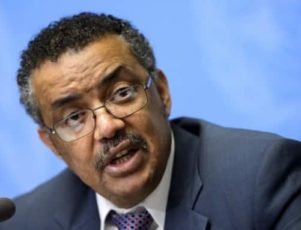
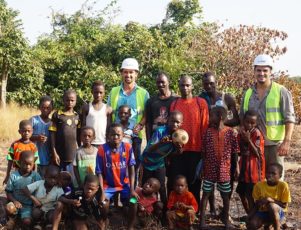
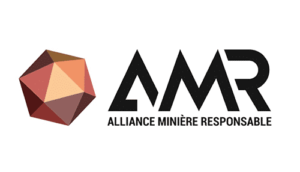 “With the Responsible Mining Alliance, we wanted to show that you can do mining differently,” declared Romain Girbal in February 2016 when asked about the philosophy of AMR on French business channel BFM. With this credo in mind, the two young French entrepreneurs set up shop in Guinea, persuaded of the enormous potential of mining in this emerging country. The Responsible Mining Alliance now holds a bauxite mining permit in Boké, in the northwest of the country.
“With the Responsible Mining Alliance, we wanted to show that you can do mining differently,” declared Romain Girbal in February 2016 when asked about the philosophy of AMR on French business channel BFM. With this credo in mind, the two young French entrepreneurs set up shop in Guinea, persuaded of the enormous potential of mining in this emerging country. The Responsible Mining Alliance now holds a bauxite mining permit in Boké, in the northwest of the country. The high standards Girbal has set for his project have attracted outside attention as well: in January 2016, Xavier Niel, the famous French billionaire and boss of telecom operator Free, decided to invest in the Responsible Mining Alliance via his personal holding company NJJ Capital. This was a big publicity win for the young mining company, and other well-known investors and partners have since joined the adventure. These include Anne Lauvergeon, ex-CEO of Areva; Edouard Louis-Dreyfus, head of Louis Dreyfus Shipowners; Alain Mallart, head of Energipole; and Daniel Lebard, head of ISPG. Not to mention Arnaud Montebourg, the former French Minister of the Economy, who worked his network to support the young French entrepreneurs’ project. In addition, the well-known French business journal
The high standards Girbal has set for his project have attracted outside attention as well: in January 2016, Xavier Niel, the famous French billionaire and boss of telecom operator Free, decided to invest in the Responsible Mining Alliance via his personal holding company NJJ Capital. This was a big publicity win for the young mining company, and other well-known investors and partners have since joined the adventure. These include Anne Lauvergeon, ex-CEO of Areva; Edouard Louis-Dreyfus, head of Louis Dreyfus Shipowners; Alain Mallart, head of Energipole; and Daniel Lebard, head of ISPG. Not to mention Arnaud Montebourg, the former French Minister of the Economy, who worked his network to support the young French entrepreneurs’ project. In addition, the well-known French business journal 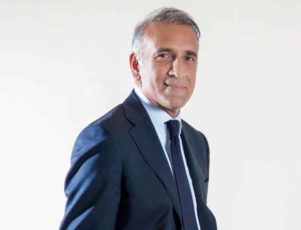
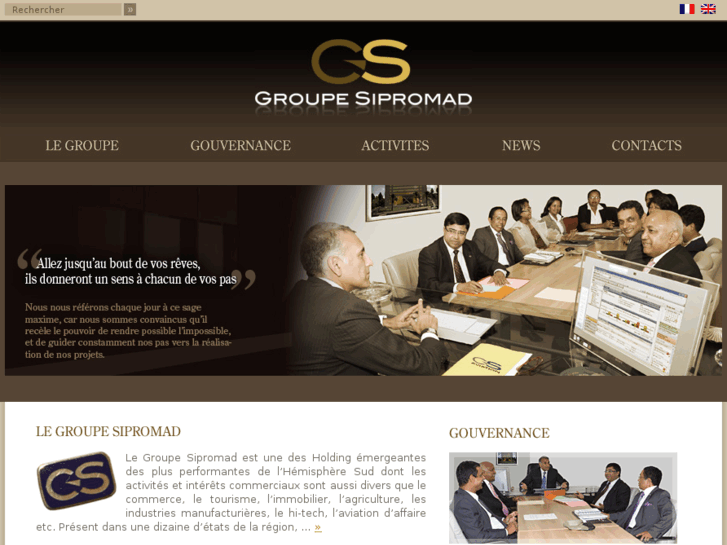
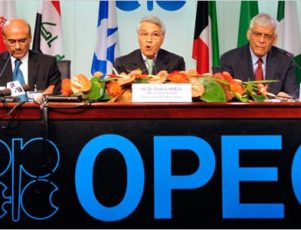

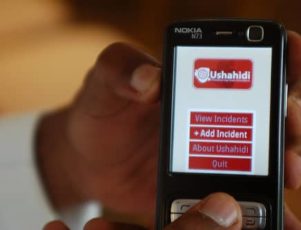

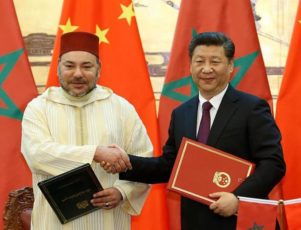
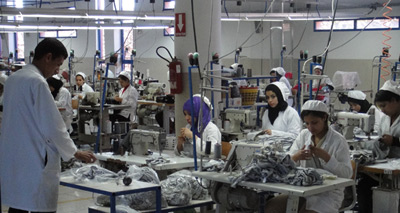
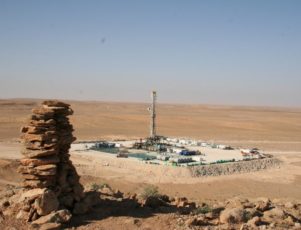
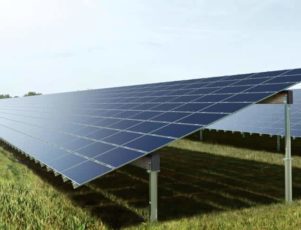
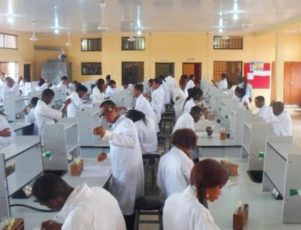

 As a group, they “already play a leading role in the development of the African continent. They contribute to consumer spending, shopping mall visits, They aspire to education, employment, entertainment and full access to electricity and the internet,” de Bigault
As a group, they “already play a leading role in the development of the African continent. They contribute to consumer spending, shopping mall visits, They aspire to education, employment, entertainment and full access to electricity and the internet,” de Bigault